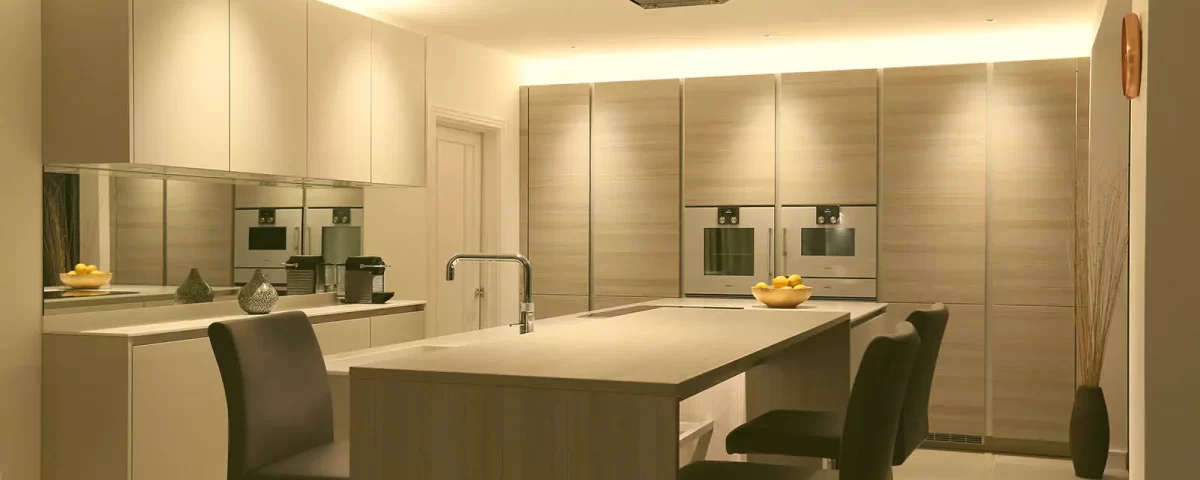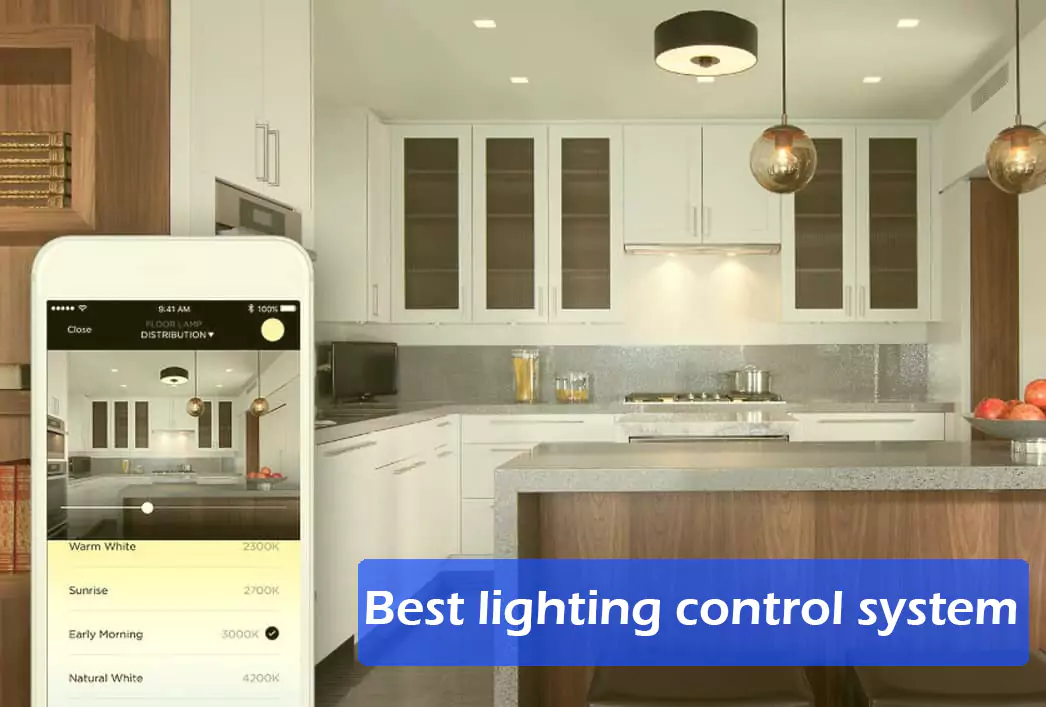- Get free quotation
- 0455554422
- sina@electrisina.com.au
Best Intelligent lighting control system
Best Intelligent lighting control system

Intelligent lighting control system
what’s a lighting control system
A lighting control system is a technology that allows you to manage and control the lighting in a space, whether it’s a residential home, a commercial building, or an industrial facility.
These systems provide various ways to adjust and automate lighting to improve energy efficiency, enhance comfort, and create desired ambiance. Lighting control systems offer features such as:
- Dimming: Most lighting control systems allow you to adjust the brightness of lights. This not only saves energy but also lets you set the right mood or lighting level for a specific task or activity.
- On/Off Control: Easily turn lights on and off with the push of a button or a voice command, simplifying daily routines and saving energy when lights are not needed.
- Scheduling: You can program the system to turn lights on or off at specific times, which is useful for energy savings and security when you’re away from home or the office.
- Occupancy and Motion Sensors: These sensors detect when a space is occupied and automatically turn lights on or off. This is particularly useful in areas with infrequent use, like restrooms, storage rooms, or hallways.
- Daylight Harvesting: Some systems incorporate sensors to measure natural light levels and adjust artificial lighting accordingly, reducing energy consumption when there’s sufficient natural light.
- Color Tuning: Advanced systems like Philips Hue can adjust the color temperature of light, allowing you to create different atmospheres in a space, from warm and cozy to cool and vibrant.
- Remote Control: Many lighting control systems can be controlled remotely via smartphone apps or web interfaces, allowing you to manage your lights even when you’re not physically present.
- Integration with Smart Home Systems: Lighting control systems can often be integrated with broader smart home or building automation systems, enabling centralized control and coordination with other devices like thermostats, security systems, and voice assistants.
- Energy Monitoring: Some systems provide data on energy consumption, helping you track and manage your electricity usage more effectively.
- Customization: Depending on the system, you may be able to create customized lighting scenes, group lights into zones, and program complex automation sequences.
These lighting control systems can be wired or wireless, and they range from simple, standalone solutions for individual rooms to comprehensive building-wide systems designed for commercial and industrial use. The choice of a lighting control system depends on the specific needs of the space and your preferences for control and automation.
Intelligent lighting control system
An intelligent lighting control system, often referred to as a smart lighting system, goes beyond traditional lighting control to provide advanced features and automation, making it more responsive, energy-efficient, and user-friendly.
These systems are typically integrated with technology such as sensors, timers, and network connectivity to create a more dynamic and customizable lighting experience. Here are some key components and features of intelligent lighting control systems:
Sensors: Intelligent lighting systems often use sensors like motion detectors, occupancy sensors, and light sensors to detect occupancy and ambient light levels. These sensors allow the system to respond to changes in the environment and user presence.
Remote Control: Users can control the lighting system remotely using smartphone apps or web interfaces. This feature is especially convenient for adjusting lights while away from home or remotely managing lighting in a commercial space.
Voice Control: Many smart lighting systems are compatible with voice assistants like Amazon Alexa, Google Assistant, or Apple HomeKit, allowing users to control lights using voice commands.
Dimming and Color Control: Intelligent lighting systems can dim lights or adjust their color temperature to create different moods or scenarios. This can enhance comfort and productivity.
Scheduling and Automation: Users can schedule lighting events based on time of day, day of the week, or specific triggers. For example, you can program the system to turn lights on and off automatically, simulate presence when you’re away, or activate certain scenes during movie nights.
Geofencing: Some systems can use your smartphone’s location to trigger actions, such as turning on lights when you approach home or turning them off when you leave.
related post : TV installation
Integration with Other Devices: Smart lighting systems often integrate with other smart home devices and platforms, allowing for coordinated actions. For example, lights can be synchronized with security systems, thermostats, and audio systems.
Energy Efficiency: Intelligent lighting control systems can help reduce energy consumption by automatically turning lights off when not needed, dimming them based on natural light levels, and providing data on energy usage.
Scenes and Presets: Users can create and save lighting scenes or presets for various activities or moods, such as “dinner party,” “movie night,” or “concentration mode.”
Data and Analytics: Some systems provide data and insights into lighting usage, helping users make informed decisions about energy efficiency and lighting design.
Wireless Connectivity: Many smart lighting systems use wireless protocols like Wi-Fi, Zigbee, or Z-Wave, which simplifies installation and allows for flexibility in device placement.
Examples of popular intelligent lighting control systems include Philips Hue, Lutron Caseta, and the lighting components within larger smart home ecosystems like Apple’s HomeKit and Google Home.
The choice of an intelligent lighting system depends on your specific needs, budget, and compatibility with existing smart home devices.
related link : Smart Home Services
Best lighting control system
The best lighting control system for you depends on your specific needs and requirements. There are various lighting control systems available, each with its own features and advantages. Here are some popular options:
- Lutron: Lutron is a well-known brand in the lighting control industry. They offer a range of products, including the Caseta Wireless and RadioRA 2 systems. Lutron is known for its reliability and ease of use.
- Philips Hue: If you’re looking for a smart lighting system that’s easy to set up and integrates well with smart home ecosystems, Philips Hue is a great choice. It’s known for its wide range of lighting options and vibrant colors.
- Crestron: Crestron provides high-end lighting control solutions for home and commercial applications. They are known for their customization and integration capabilities, making them a popular choice for luxury homes and businesses.
- Control4: Control4 is a versatile smart home automation system that includes lighting control as one of its features. It’s known for its flexibility and the ability to integrate with a wide range of smart devices.
- SmartThings: If you’re looking for an affordable and DIY-friendly option, Samsung’s SmartThings is a good choice. It can control lighting and a wide range of other smart devices through a central hub.
related post : CCTV installation
Other best lighting control system
- KNX: KNX is an open standard for home and building control. It’s highly flexible and scalable, making it a good choice for both residential and commercial applications. However, it may require professional installation and programming.
- Insteon: Insteon is a reliable and affordable option that uses a dual-mesh network for communication, making it less reliant on a strong Wi-Fi signal. It’s easy to install and expand.
- C-Bus: Clipsal C-Bus is a popular choice in Australia and other regions. It offers a wide range of lighting control options and can be integrated with other automation systems.
- Wireless DIY Systems: If you’re looking for a simple, affordable, and easy-to-install option, there are various wireless DIY systems available, such as TP-Link Kasa, TP-Link Deco, and others. These are best suited for basic lighting control needs.
When choosing a lighting control system, consider factors like your budget, the size of your space, the level of customization and automation you desire, and compatibility with other smart home devices you may have.
It’s a good idea to consult with a professional installer or integrator to help you choose and set up the right system for your specific needs.
related post : Home Electrical Renovation Service in Sydney





